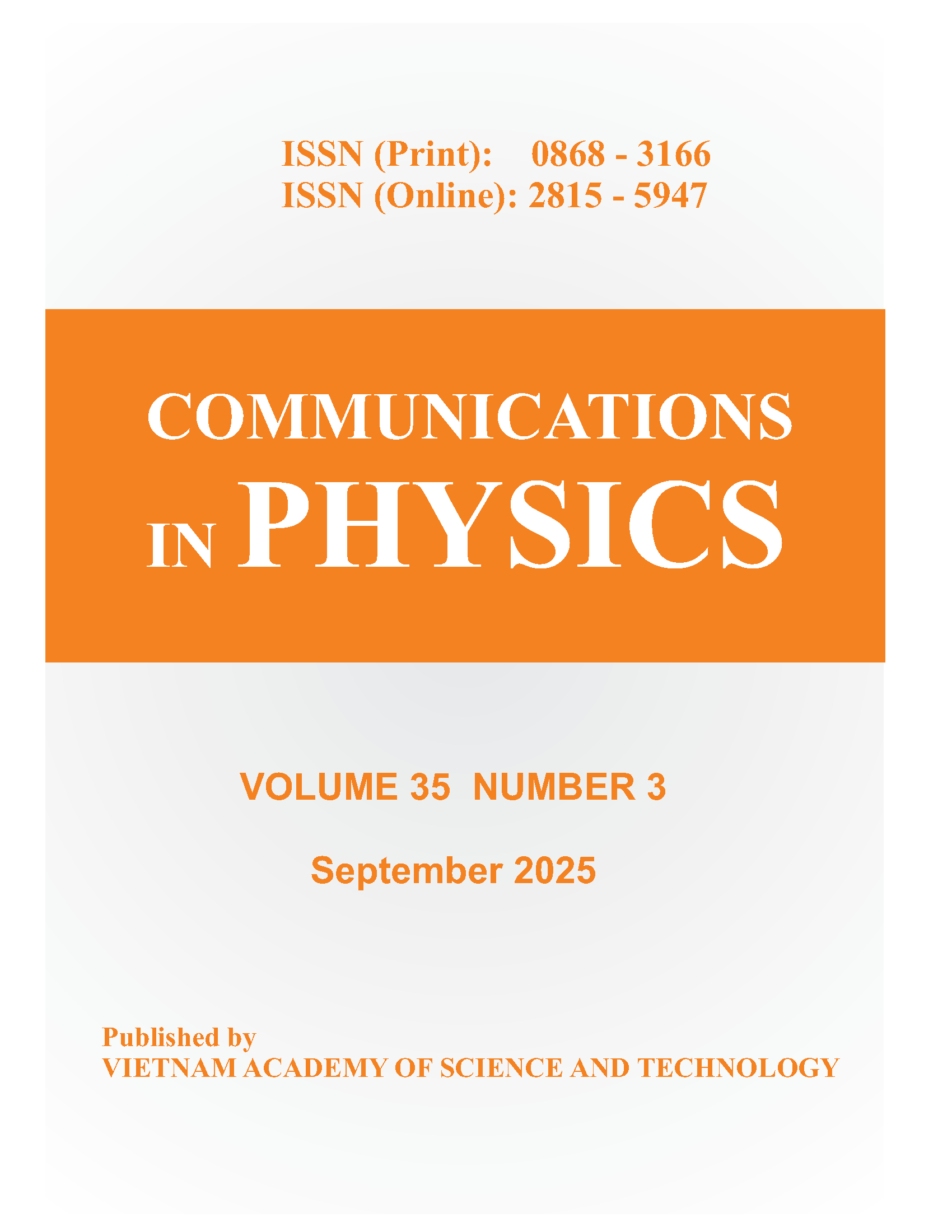Influence of Blocking Effect and Energetic Disorder on Diffusion in One-dimensional Lattice
Author affiliations
DOI:
https://doi.org/10.15625/0868-3166/24/1/3454Keywords:
Diffusion, Disordered lattices, Gaussian distribution, Blocking effect, energetic disordersAbstract
The diffusion in one-dimensional disordered lattice withGaussian distribution of site and transition energies has been studied by mean of kinetic Monte-Carlo simulation. We focus on investigating the influence of energetic disorders and diffusive particle density on diffusivity. In single-particle case, we used both analytical method and kinetic Monte-Carlo simulation to calculate the quantities that relate to diffusive behavior in disordered systems such as the mean time between two
consecutive jumps, correlation factor and diffusion coefficient. The
calculation shows a good agreement between analytical and simulation results for all disordered lattice types. In many-particle case, the blocking effect results in decreasing correlation factor F and average time \(\tau _{jump}\) between two consecutive jumps. With increasing the number of particles,
the diffusion coefficient \(D_{M}\) decreases for site-energy and
transition-energy disordered lattices due to the F-effect affects stronger than \(\tau\)-effect. Furthermore, the blocking effect almost is temperature independent for both lattices.
Downloads
References
J.W. Haus, K.W. Kehr, Phys. Rep. 150, 263 (1987).
Peter M.Richards, Phys.Rev.B,16,4,1393 (1977).
Li-Shi Luo et al., Phys.Rev.E, 51,1,43 (1995).
A. V. Nenashev, F. Jansson, S. D. Baranovskii, R. Österbacka, A. V. Dvurechenskii, and F. Gebhard, Phys.Rev. B 81, 115203 (2010).
J.W.Van de Leur, A.Yu. Orlov, Phys. Lett. A, 373,31, 2675 (2009).
Y.Limoge, J.L.Bocquet, J.non-cryst.solids, 117/118, 605 (1990).
Y.Limoge, J.L.Bocquet, Phys.Rev.Lett.65,1, 60 (1990).
Panos Argyrakis et al, Phys.Rev. E,52,4, 3623 (1995).
A. Tarasenko, L. Jastrabik, Applied Surface Science 256, 5137 (2010).
S. H. Payne and H. J. Kreuzer,Phys. Rev. B 75, 115403 (2007).
T. Apih, M. Bobnar, J. Dolinsˇek, L. Jastrow, D. Zander, U. Ko¨ster, Solid State Commun. 134, 337 (2005).
N. Eliaz, D. Fuks, D. Eliezer,Mater. Lett. 39, 255 (1999).
V.V.Kondratyev, A.V.Gapontsev, A.N. Voloshinskii, A.G. Obukhov, N.I.Timofeyev, Inter. J. of Hydrogen Energy 13, 708 (1999).
Y.-S. Su and S. T. Pantelides, Phys.Rev.Lett. 88, 16, 165503 (2002).
http://en.wikipedia.org/wiki/Normal_distribution.
Y.Limoge, J.L.Bocquet, Acta metal. 36,7, 1717 (1988).
R. Kutner, Physica A 224, 558 (1996).
Downloads
Published
How to Cite
Issue
Section
License
Communications in Physics is licensed under a Creative Commons Attribution-ShareAlike 4.0 International License.
Copyright on any research article published in Communications in Physics is retained by the respective author(s), without restrictions. Authors grant VAST Journals System (VJS) a license to publish the article and identify itself as the original publisher. Upon author(s) by giving permission to Communications in Physics either via Communications in Physics portal or other channel to publish their research work in Communications in Physics agrees to all the terms and conditions of https://creativecommons.org/licenses/by-sa/4.0/ License and terms & condition set by VJS.











